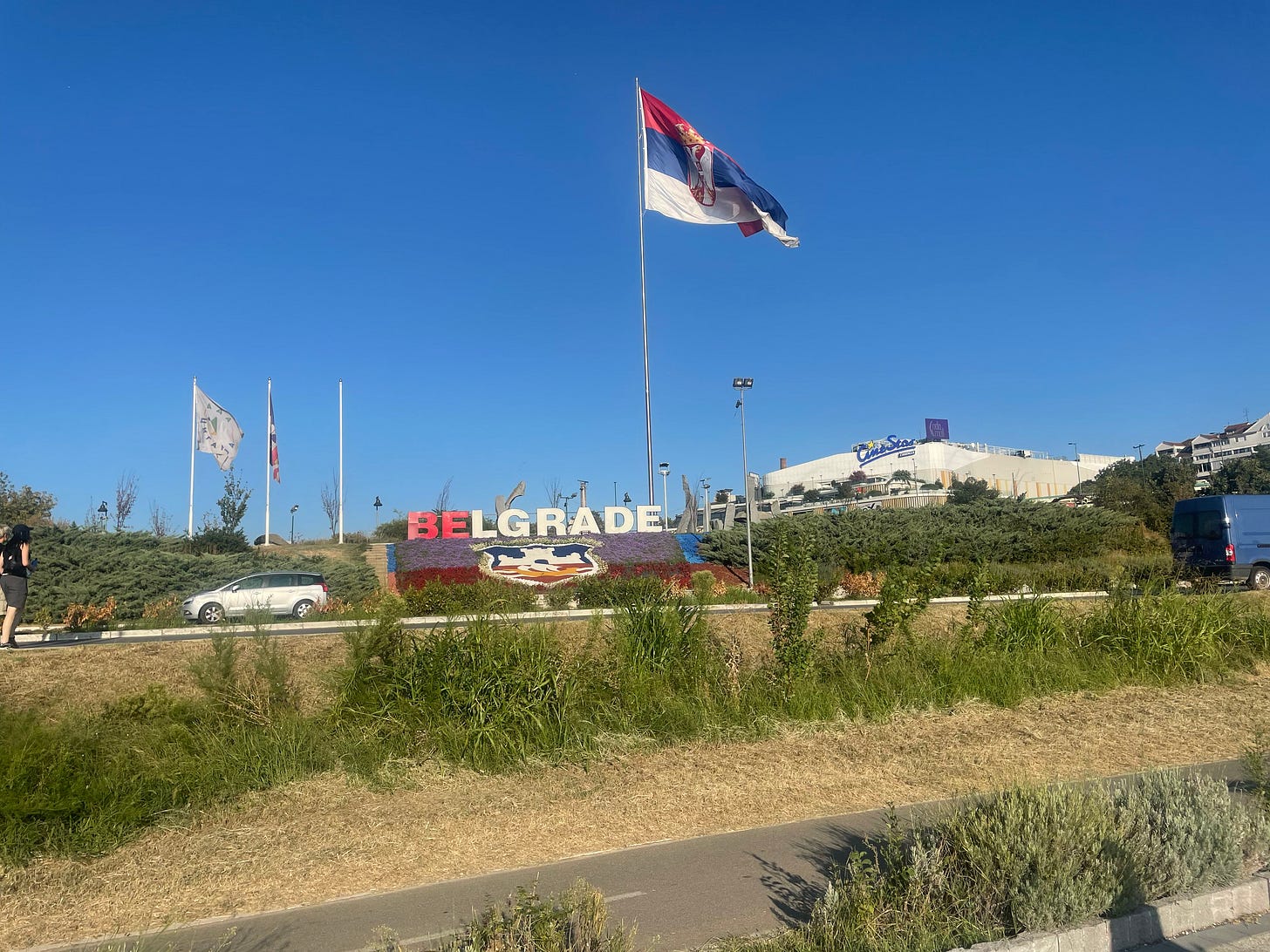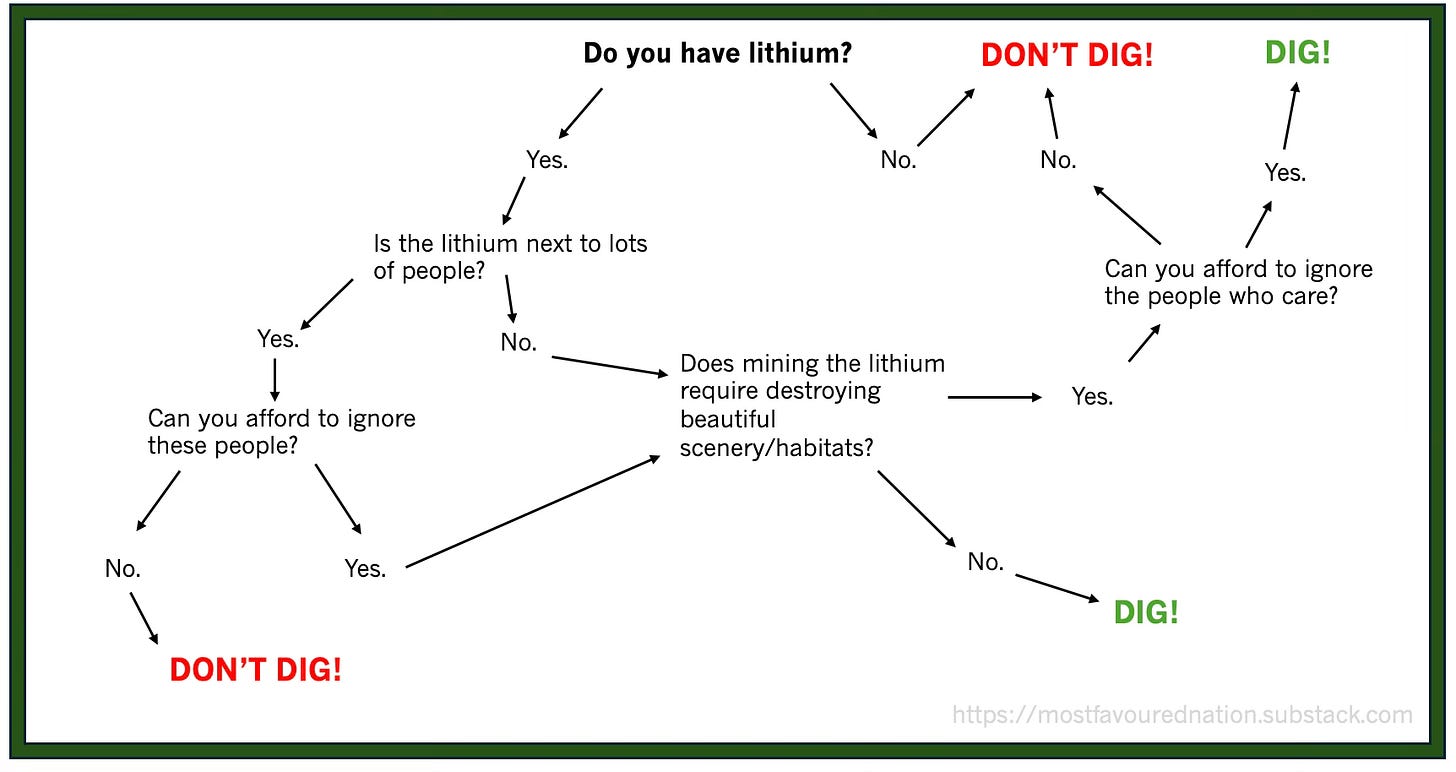Diversification is Difficult
I went on a trip
I spent the weekend in Belgrade, Serbia, attending a friend’s stag do responsibly soaking up the history and culture.
At the same time as we were attending a Redstar Belgrade league match (which was quite the spectacle, see the video at the end), around 30,000 people took to the streets to protest against a proposed lithium mine in the Jadar Valley, West Serbia.
To re-cap: lithium is needed for the production of green stuff, and Serbia hosts one of the largest lithium deposits in Europe — enough for around “1mn EV batteries a year”.
For the EU, getting access to this lithium is a really big deal, and essential to weening itself off China (and the US). In July this year Serbia’s President, Aleksandar Vučić, signed a memorandum of understanding with the EU’s Maroš Šefčovič.
The MoU commits both parties to
Enhance the development of value chains for raw materials, batteries and EVs, by facilitating close cooperation between EU and Serbian industrial actors and stakeholders. The MoU will encourage the development of a mutually beneficial pipeline of projects with special focus on the EV industrial ecosystem.
Cooperation on research and innovation (R&I), by mapping the existing cooperation areas under EU Horizon Europe R&I framework programme and other schemes. On the basis of the MoU, both parties will share knowledge and technologies related to sustainable exploration, extraction, processing and recycling of secondary raw materials.
Application of high environmental, social and governance standards and practices will be facilitated through mutual consultation and exchange of information on relevant policies and initiatives along the entire value chains, including through the application of increased due diligence and traceability for the battery value chain.
Mobilisation of financial and investment instruments to support investment projects under the Partnership, notably through Invest EU, the Western Balkans Investment Framework and a Single Project Pipeline in Serbia as well as under the European Raw Materials Alliance and European Battery Alliance.
Developing necessary skills for high-quality jobs in raw materials and battery sectors. This includes participation of Serbian organisations in European Battery and upcoming Raw Materials Academies, including possible Serbian contribution with dedicated programmes and internships.
President Vučić also pledged not to sell the lithium to Chinese carmakers.
So far so good [for the EU].
Buuuuuuuuuuut, digging things out of the ground is hard. And it turns out that quite a lot of people in Serbia would like this lithium to stay where it is.
Given that Vučić isn’t necessarily *ahem* constrained by the wishes of Serbian voters this mine could still go ahead, but it does demonstrate why diversification can be difficult.
In short, if you are a government that wants to do some mining you have to hope it is either nowhere near any people or environmentally attractive places, or you have to be able to ignore the wishes of those particular people.
In decision tree form:
Best wishes,
Sam
Bonus video [sound on]:




What are the chances of the UK's Trade Continuity Agreements with Algeria, Bosnia & Herzegovina, and Montenegro going into force?